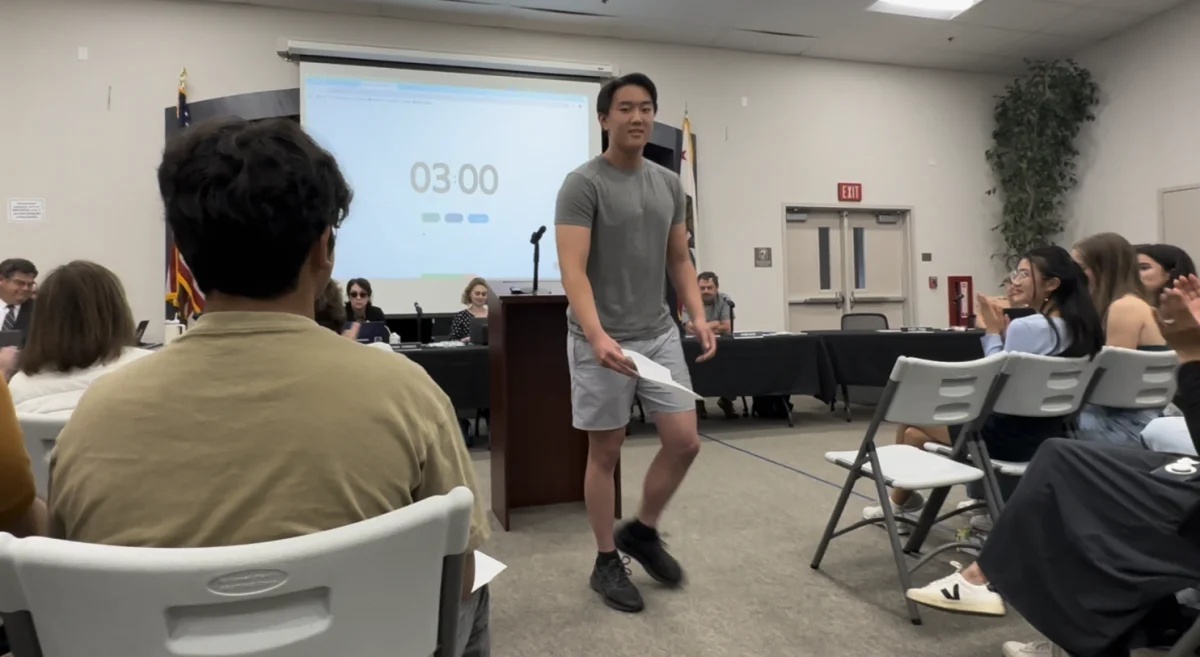I usually don’t enjoy humanities classes — especially history classes that didn’t feel particularly relevant to modern times. But AP Human Geography (HGAP) changed my mind. It focused on contemporary topics like national economies and aging populations, as well as people’s diverse interactions with cultures and societies across the globe.
In a Mountain View-Los Altos School Board meeting regarding the removal of both sophomore AP social studies courses, I advocated for HGAP. Without these courses, the remaining option is World Studies with a focus on European history — a course that would not reflect a majority of HGAP topics and lessons.
I learned about how aging populations affect national economies, how global migration shapes urban development, and perspectives on how we obtain our food as well as the benefits and downsides of widely debated concepts like GMOS. Because these topics were so relevant and thought-provoking, I found myself consistently engaged in these relevant and thought-provoking topics, whether it was participating in meaningful discussions with my peers or completing an interactive activity about cultural patterns.
Since I took HGAP, I have gained a better cultural understanding of the U.S. and our place in the global social and economic landscape. Learning about population growth, mortality rates, and urban development has sharpened my awareness of my own privileges and the global inequalities that persist, and has shown me how our nation can contribute to the development of other countries. Now that I’m more informed about these topics, I’m more committed and better equipped to pursue a STEM career that prioritizes ethical, inclusive innovation.
HGAP has quite literally changed my perspective of the world and the extreme sufferings that arise due to conflicts. Learning about forced migration caused by push factors such as the civil war in Syria helped me understand the real and urgent struggles millions face today. In fact, this civil war led to a staggering displacement of more than 13 million people, with over 6 million living as refugees — a global crisis often unnoticed by those not directly affected. If students aren’t often exposed to such realities, we risk losing global empathy and action. This is why I repeatedly stress the importance of HGAP: It helps people understand and care about these issues from a young age.
When students truly understand these global issues, they become more thoughtful citizens — better equipped to advocate for change, vote with global consciousness, and approach their future professions with an overall perspective. After all, we must be well-informed to form our personal values and opinions.
But HGAP isn’t the only course we’re at risk of losing. At the May 19 Board Meeting, other students also fought to keep AP Modern European History. If you took HGAP or MEHAP, I strongly recommend you stand up for this cause as well by showing up and speaking out against the removal of these classes. If these courses are removed, we risk narrowing students’ worldviews and limiting critical conversations that shape compassionate, informed leaders. Let’s fight together to keep these doors to global consciousness and educational equity open. In doing so, we won’t just be shaping better students; we’ll be empowering future leaders who will better the world around them.
Every student’s voice counts, so please share your experience in HGAP or MEHAP and explain why these courses matter to you — just like they did for me. Let’s stand together to protect valuable educational opportunities for all future students.
If you’re unable to attend future board meetings about this topic but still would like your voice heard, please consider emailing Superintendent Eric Volta directly at [email protected] or [email protected].



